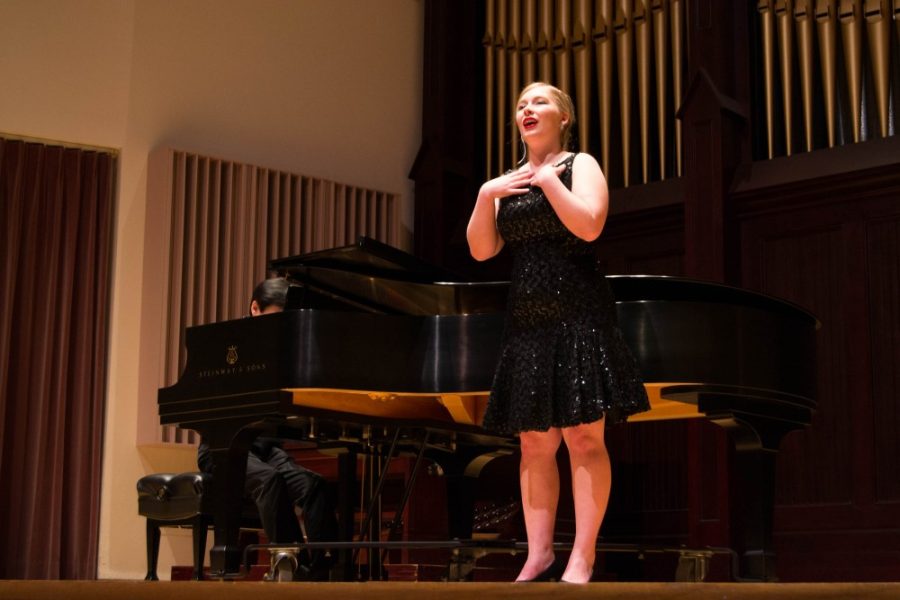The Fred Fox School of Music hosted the annual Amelia Rieman Opera Competition Sun. March 19 which featured students from the UA Voice Studios. This competition serves as a chance for undergraduate and graduate students to earn scholarships for their vocal performances.
Amelia Tataronis-Rieman was the original founder of this competition, wanting to spread her love of Opera to the younger generation and encouraging the continuation of a seemly unrecognized vocal art.
It is her love of Opera that continues to bless students with financial support in essence of performance costs, lesson fees and other opportunities.
RELATED: Tucson Cine Mexico Film Festival returns with a lineup of mexican cinema presented to the public
The competition has thrived since 2000 and will continue to run with the assistance of an endowment by Tataronis-Rieman ensuring its lasting impact.
Divided into age group classifications starting with ages 18-23 and then moving to ages 24-40 competitors sing solo with the accompaniment of piano and at times, props to enhance their performance.
http://music.arizona.edu/events/amelia-rieman-opera-competition/
As much as a expression in voice, opera is the development of a story using the artist’s voice as well as facial expression and body movement creates something that must not only be heard but watched.
“It is both a great honor and a lot of pressure to assess the technique and interpretation of the vocal performers in a matter of minutes,” said Mary Paul, a Tucson vocal instructor and judge of the Amelia Rieman Competition.
The vocalists start with their most technical piece then are asked to perform two pieces of the judges choice based on the time allotment left.
“As a judge you want everyone to do well, I look more into the stylistic choices of the artist than the small mistakes they may make under pressure,” Paul said.
All performances are given a time limit of five minutes and are expected to prepare up to three pieces for this time. However, how many they get to perform relies on the judges and their timing. Some last for all three others are cut off in hopes to have enough time to see all performances.
RELATED: UA’s The Merchant of Venice brings audiences serious issues within a Shakespearean dramedy
“This is just a window in the development of their acts, just having a slice of the singers development across time,” Paul said.
Mary herself started studying in High school and reflects on the pressure she knows that these young performers have on them during performance.
“Its different than a regular performance because it is only a tiny sliver of time and you have to show your best side to the judge in that amount of time,” Paul said.
However, the students come prepared with fantastic attitudes and flexible nature in the face of the obvious pressure they are under.
What may seem like a forgotten art form comes to life in their performances. Their attitudes and character show a passion for their craft that makes each performance a joy to watch.
Moving from vocalist to audience, performers draw the audience into their story offering an experience unlike other vocal acts.
Telling a story this way is an intriguing experience as you both have to hear and watch the artistic interpretations develop as artists sing and compete.
Follow Daily Wildcat on Twitter









